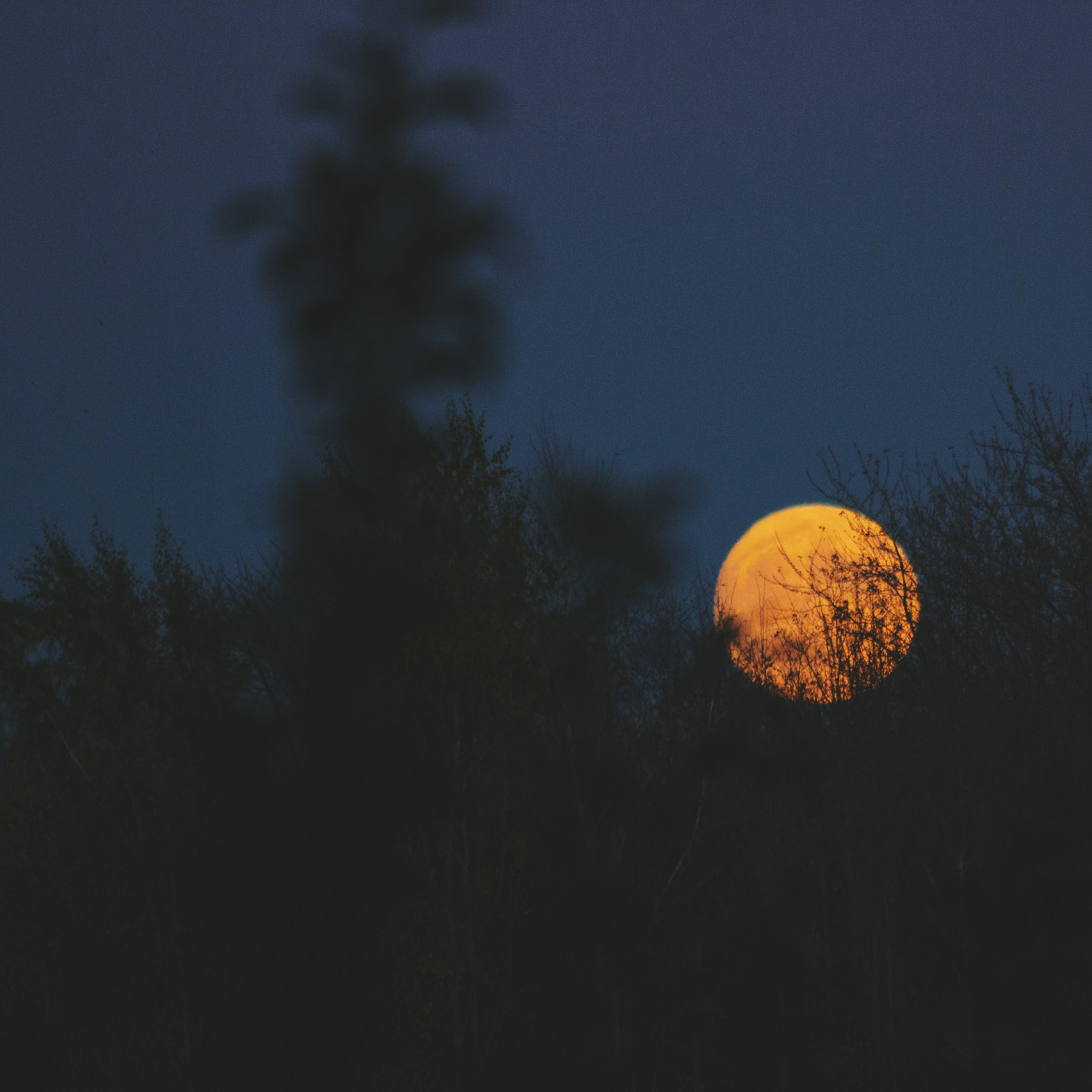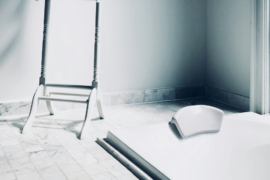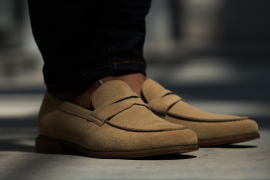I USED TO BELIEVE MY BODY WAS MY MIND MADE VISIBLE. Every cruel thought about another person erupted as a pimple on my face. Every greedy impulse stained my teeth. My breasts were too small, my nose was too large, and my hair frizzed out in a dandelion puff because I was too passionless, too awkward, too stupid to know how to forge beauty from the genes I was given.
A therapist once asked me if my life would be better if I were prettier. She wanted me to articulate each specific benefit I would enjoy. Obviously she wanted me to think for a moment and cry out, “But my friends would love me the same! The sun would glint off of spring flowers with the same radiance, and ice cream would melt sweetly on my tongue just the same! How silly I’ve been!”
Women and their frivolous attachment to beauty. Always exchanging real dollars for social currency: an enhanced smile, a flattering haircut. These mean nothing on their own, but they can buy you male attention, a higher ranking among your peers, safety from the wolf packs that prey on the ugly. I studied sociology in college. I know how this theory goes.
I didn’t bother explaining to my old therapist that I wanted more than to get laid regularly or catch a bartender’s eye with ease. Or that the nausea I felt around mirrors had fuck-all to do with societal expectations. I had already reached a private diagnosis for myself. Through some turn of events, some gap in my family history or prepartum trauma to my mother, I was born without the capacity for a soul.
Eventually I found myself back in the hospital where I was born. It took me thirty years to travel from Maternity to Psych. I kept this observation to myself so I could chew on the implications alone. I imagined something being removed from my infant body, or planted. A kind of homing device to bring me back? Whatever happened, was it done with love or malice?
Through some turn of events, some gap in my family history or prepartum trauma to my mother, I was born without the capacity for a soul.
These jumbled thoughts were part theory, part flight of fancy, part experiment. I could still tell the difference between what others would consider insanity and what they wouldn’t, although I could no longer tell what I really believed. I was trying to measure the depths of my own craziness, because I didn’t trust the social workers to give me an accurate reading. Their terminology was too blase: depression, dissociation. It was all plucked from books or websites, sterile and godless and detached.
Still, I took the medicine the psychiatrist prescribed without making a fuss. I enjoyed lining the pills up alphabetically in the palm of my hand: Abilify, buspar, citalopram. I pictured my brain newly flushed with neurotransmitters, whole new networks of synapses sparking alive. I wondered who had been hiding in my mind this whole time, unable to speak for lack of serotonin. I wondered how they would emerge.
I know some people are afraid to start medication because it might alter who they are, but I could not have been more ready for this version of me to die. I prayed for the water fountain where I took my pills to become a baptismal font.
It was early in the afternoon when they told me I could leave the hospital, but there was still paperwork to file and aftercare arrangements to make. The sun was going down before the taxi dropped me off at my house. I crawled into bed and waited semi-patiently for the stars to come out. When the shadows around my room had grown large enough to take over, when everything was dark, it felt safe pull my bedsheets off.
As I walked through the kitchen, I pulled my shirt over my head and dropped it on the floor. In the den I stepped out of my jeans, then my underwear. As I pushed open the back door, there was a moment when I didn’t know what I expected to see on the other side. Fairies balanced on oak leaves, startled by my interruption? The swimming pool from my childhood backyard? The locked double doors of the psych ward?
I saw grass, my magnolia tree, the patch of dirt where I’d been thinking about planting roses for the last two years. I made my way slowly to the middle of the yard. I wanted to be in moonlight, but the moon was competing with the street lamp that rose over my fence. Everything shone orange at the edges.
As I pushed open the back door, there was a moment when I didn’t know what I expected to see on the other side. Fairies balanced on oak leaves, startled by my interruption?
My arms had been folded defensively across my chest. I let them drop. I felt something pressing against my skin with the humid air, teasing at my pores and my lips, trying to find a way in. I wanted to breathe deep. I wanted to be knocked aside so hard that I would break at every joint, a pile of bones as white as the moon, more beautiful than any photographer or glossy eyed model could ever dream.
I just didn’t have the nerve. I ran back inside, found my robe in the bathroom and put it on. I turned on the TV. I could feel the universe rotating beyond the walls. It had nothing to do with me.
During this era, everything significant seemed to happen at night. My days were divided between therapy groups at the hospital and work at the office. It didn’t really matter where I was; it was all tedious and overly air conditioned. I wasn’t opposed to therapy, nor did I believe that the social workers had nothing to teach me. It was just that I could feel the other patients’ misery against my skin, and it burned. I was afraid that if I opened my mouth I might swallow some.
The entire world changed at night, when I was at home and finally alone. The darkness would come sweeping down my street like flood waters. It reminded me of dreams I used to have where I was about to drown, terrified, before I suddenly discovered I could breathe underwater. I could breathe at night, too. I could sit cross-legged in my backyard and feel exactly like a stone at the bottom of the ocean.
When I couldn’t see things clearly, I could feel them. I felt my own selfishness like a glacier pushing into my back. I felt loneliness as a colony of ants climbing up my stomach. At times I could even feel desire, a sharp rock cutting into my thighs.
This is how I learned that my body was pure. It ate, it drank, it longed to fuck. I’d had it backwards my entire life. I’d assumed my brain was the center of enlightenment, would eventually be the source of my salvation. Sitting in the grass, smelling the smoke in the air and the dog shit in the neighbor’s yard, I felt my gut roil and grow and take over. My brain was corrupt. My brain was disgusting. My body alone could guide me home.
It was easy enough to make the resolution that I would listen to my body. The problem was deciphering the language of nerves and instincts. We don’t talk to children about decoding pleasure or tracing pain back to its source. At least we didn’t when I was growing up.
My brain was corrupt. My brain was disgusting. My body alone could guide me home.
I began touching tree trunks with my fingertips as I walked by. I stopped listening to music in favor of crickets. I discovered that wanting to live can be more challenging than wanting to die. It’s harder to figure out what to do about it.
I decided that if I wanted to be less crazy, less trapped in my skull, I would have to approach the problem like a scientist. I began gathering evidence that I had not always been so numb. There were photographs of me as a child, smiling without a trace of shame. There were battered notebooks full of poems that ran off the lines and skipped down the margins. When I read over them I was shocked by the intensity of their love and rage. I couldn’t feel any connection with the young woman who had written them, but surely she still existed, curled up somewhere in the folds of my brain.
I tried to remember what it used to feel like to watch a storm from the front porch or peel a blade of grass into pieces. When I couldn’t, I began watching videos online about photosynthesis and weather systems. I would dig my way back into the world one way or another. I would find it again, that mystic point of connection where the molecules that are you shift in reaction to the molecules that are another creature, turning you into someone else.
One night I drove to a bar hidden in a strip mall on the other side of town. It was an experiment. This was the bar my first girlfriend Ramona and I used to visit, back when we were barely old enough to be there. I wanted to see if sitting on the same torn up stools, watching women dance under the same strings of Christmas lights, would remind me what it had felt like to be in love with her.
The problem wasn’t a lack of information. I could remember that we were together for seven months, that we had been next-door neighbors in student housing, that I fell for her the night she got her head shaved by our friend Becca in my bathroom. It was her laugh that knocked me breathless. It came from deep in her gut and bounced off the walls like pure energy.
I put these memories together the way a paleontologist arranges bones. I sat at the bar with a gin and tonic and thought about the limited usefulness of skeletons. Did dinosaurs have feathers? What ran through their minds as they killed or were killed? How had I ever heard another person’s laugh through the white noise in my head?
Women came and went from the bar like birds. Some of them stood right next to me as they placed their orders, the fabric from their shirts or dresses almost brushing my arm. All of these women were beautiful in one way or another. I could see this, but it felt the same as appreciating a painting or a gem. Being alone in public is such a sharper feeling than staying in your home. It scratches at you until an ocean bleeds out.
I put these memories together the way a paleontologist arranges bones.
I closed my tab and fled. Back at my house, relatively safe and curled under my bedsheets, I tried to assess the evening. On one level my mission had clearly failed. I hadn’t learned much, or even made eye contact with anyone, and I was still the same person I had been that morning.
But something was happening in my heart, a painful but captivating itch, like when a deep cut starts to heal. It took some thought to recognize this feeling as loneliness. I was alive enough to feel lonely. I imagined someone lying next to me, a woman with soft skin and kind eyes. I ran my hand down the far side of my mattress and cried with desire and gratitude.
These days I still cling pretty tight to rationality. I still take my pills in alphabetical order every morning. In the evening I sit at my desk to record notes and measurements. The depth of green in a passing stranger’s eyes, or the width of my anxiety when I looked into them. My way out into the world is through a tunnel made of nerves. I see that now.
I still sit outside at night. I am studying the weightlessness of living without a soul. It’s actually a beautiful thing to be: a happenstance of light, a creature made of earth, a breathing point of connection between all the different molecules that float beneath the moon.
God bless the moon and God bless me.
Emma Atkinson lives with her cats in Houston, Texas. Her work has previously appeared in Sixfold and Cutbank Literary Journal, among other places.
Like what you’re reading? Get new stories sent to your inbox every Monday.
Drop your email below to start >>>




